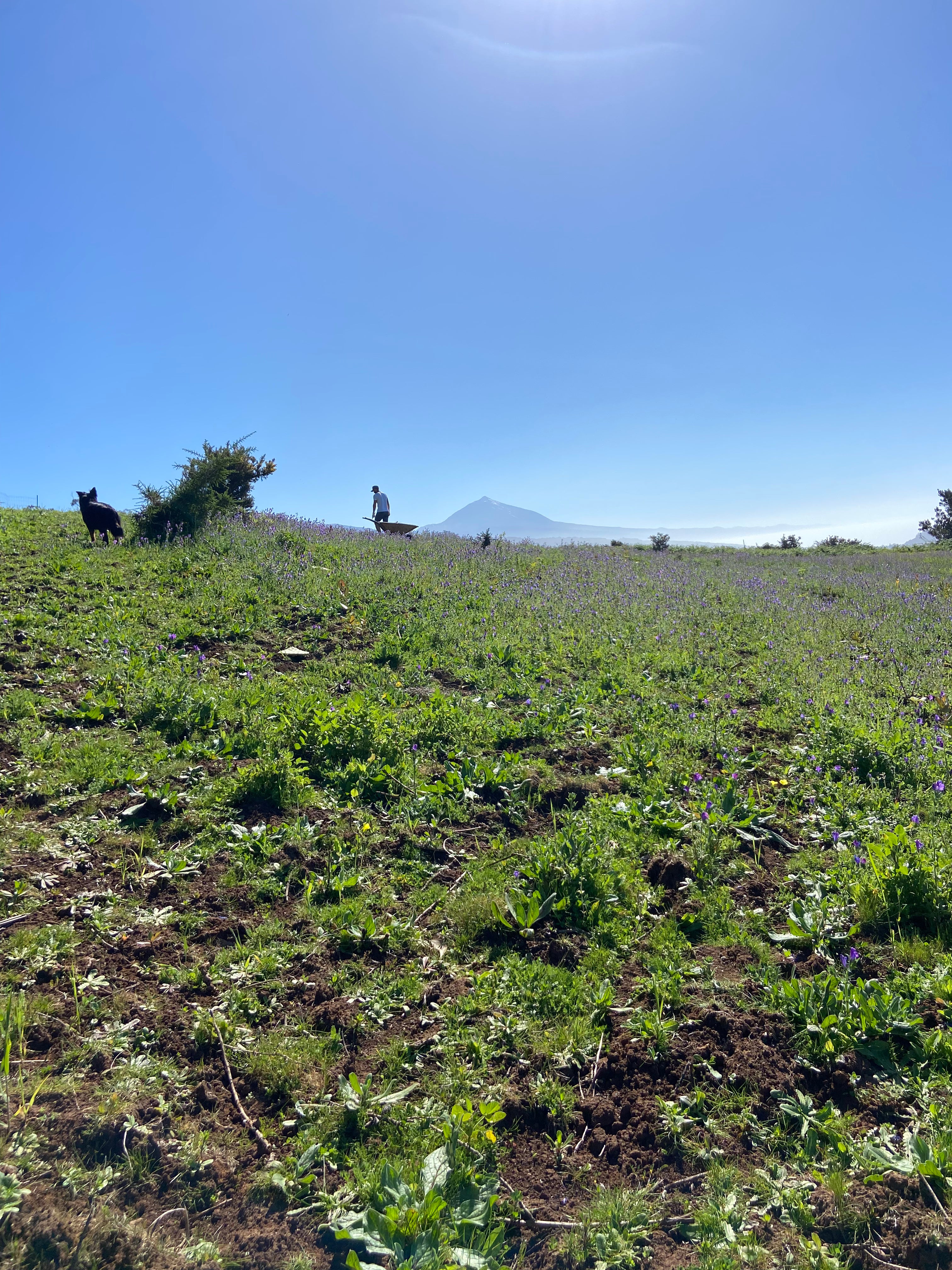Rebecca NUEZ
Rebecca NUEZ
Every garment you buy at MIA plants a tree through our collaboration with the LILO Project
Couldn't load pickup availability
“This cardigan evokes a connection with the roots, with the ground you walk on.” It is a basic that you will turn to like a walk when you need it most.
Rebeca ONLY ON ORDER : it takes between 11 and 15 days to make it. Later we send it.
Technical description:
Handmade with the knitting technique by weavers from the island.
Special soft and silky material, not itchy at all.
Buttons: recycled cotton.
Ball of: 72% Natural Sheep and 28% Alpaca Wool. One of the best qualities of wool in the world. In its natural color, without the use of toxic chemical dyes.
Ball of: 100% Natural Merino sheep, ungraspable. One of the best qualities of wool in the world, soft, fresh and comfortable. Color extracted from the extract of the walnut, being dyed in an artisanal way.
Washing instructions:
Wash with cold water, with special ecological soap for wool and air dry.
To learn more about the materials we use in our production, you can go to HOW? → MATERIALS on our website.
Made in our workshop , on the Island of Tenerife, Spain.
A garment, a tree
A garment, a tree
MIA, agroforestry and LILO

Since our beginnings we have always been clear that to be a regenerative enterprise, we had to find a way to integrate the manufacturing processes of our garments into the agricultural business fabric.
So that the garments would once again nourish the land and its communities.
“ With the LILO project we mitigate the environmental risks of our production while managing to positively impact Canarian society and its ecosystems.
With the agroforestry systems that we implement, we not only achieve sustainable development and the reduction of CO2 emissions in business activity, but we go one step further; We can actively help in the creation of systems and processes that regenerate our lands, that enrich them and add more value to the current one.
And we are achieving this through fashion, on a large scale and with healthy entrepreneurship; something that seemed very difficult to achieve a few years ago, because of what the term fashion meant thanks to fast fashion. "
----
Why the LILO Project?
The LILO project (Las Islas de Las Oportunidades) is a venture that is based on carrying out agroforestry and environmental education actions around the Canary Islands and the world.
The basic idea of the project is to find, improve and share sustainable solutions to the current scarcity of resources and dependence on food imports in different parts of the world.
In this way, productive natural systems are generated, capable of sustaining themselves economically while regenerating soil and water resources.
Ensuring wealth for current and future generations.
This is achieved by the LILO Project through the implementation of Natural Productive Systems such as its Integrated Poultry Systems that combine Agroforestry, Poultry Farming and Composting.
Through the combination of these three elements, the earth is worked from a three-dimensional point of view. Where the capacity of the land is no longer measured in square meters, but rather work is done and benefits are received from the depths of the subsoil to the highest canopy of the trees in the system. Thus being able to offer a greater return and ecosystem solutions than agriculture or any current conventional production model.
Today, MIA is committed to allocating the equivalent of one tree planted for each garment sold.
“It is important to note that, today, the MÍA project would not have the same impact without the joint collaboration with the LILO Project.
The added value that we offer to our final consumer and, therefore, to society, is that we manage to give continuity to our production cycle by working on regeneration.
In 2022 we planted more than 800 trees alongside the LILO Project where more than 100 could be planted thanks to the land obtained as a result of the direct relationships generated with MIA clients. And much of that tree planting started with some of the compost generated with the scraps from MIA's 2021 production.
Even so, we want to continue scaling these numbers and we are working to have a greater impact. We have set the company's annual goal of planting 4,000 trees by the end of the year.
At the end of the day, we want our community to see and understand that through cooperation and partnership between projects that strive for the common good, we can generate an exponential and unimaginable positive impact.”
María "Mia", designer and founder.










